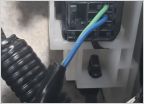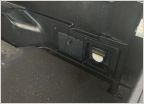-
Welcome to Tacoma World!
You are currently viewing as a guest! To get full-access, you need to register for a FREE account.
As a registered member, you’ll be able to:- Participate in all Tacoma discussion topics
- Communicate privately with other Tacoma owners from around the world
- Post your own photos in our Members Gallery
- Access all special features of the site
2GR-FKS burnt valves and blown gaskets octane related?
Discussion in '3rd Gen. Tacomas (2016-2023)' started by Kuzumonkey, Jan 28, 2025.
Page 1 of 3
Page 1 of 3


 Pop n lock connections 19 S
Pop n lock connections 19 S Switches that fit in 2016s?
Switches that fit in 2016s? ADVICE NEEDED! Leer 100XR canopy leaking
ADVICE NEEDED! Leer 100XR canopy leaking 23 SR - alternatives to the Toyota emblem in the grille?
23 SR - alternatives to the Toyota emblem in the grille? Spare tire upside down
Spare tire upside down RFCC TTG2 + Rigd Rear Cam + Front Cam Wiring questions
RFCC TTG2 + Rigd Rear Cam + Front Cam Wiring questions















































































